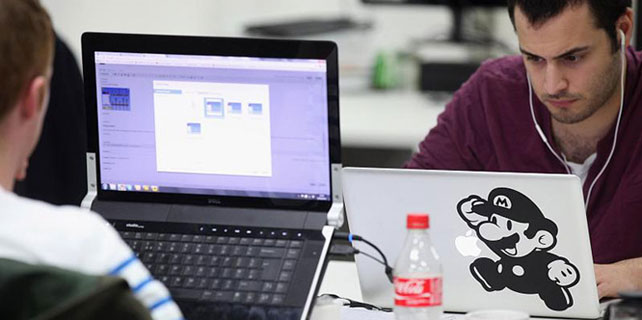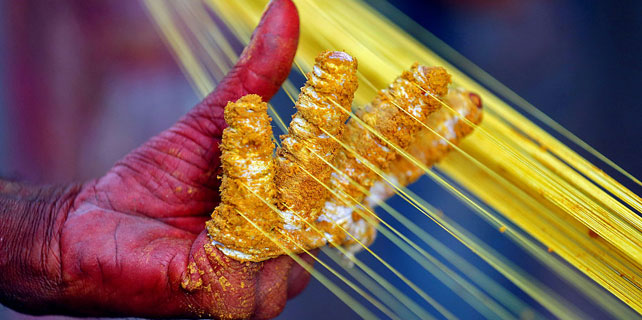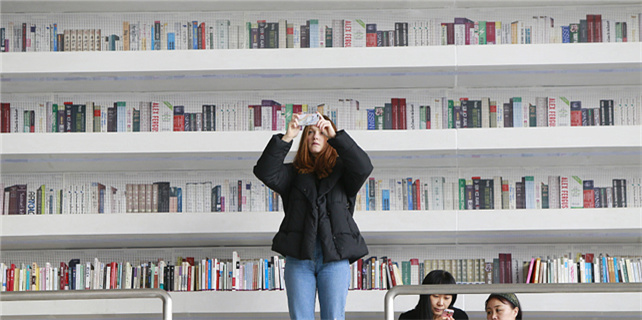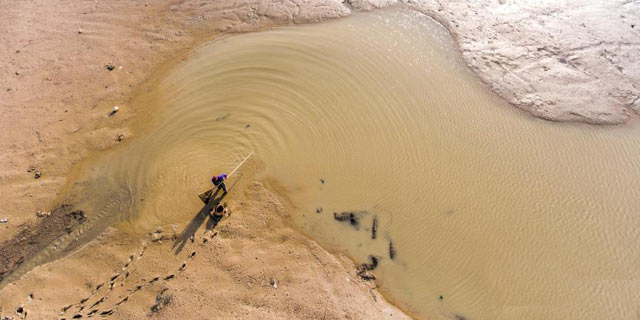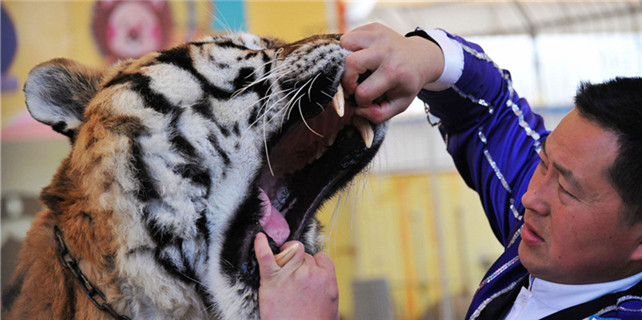From a refugee camp to the world's upscale boutiques
JERASH CAMP, Jordan - In a small workshop in a refugee camp in Jordan, Halima al-Ankassuri embroiders traditional patterns onto a blue shawl, destined for sale in an upmarket Paris, London or Dubai boutique.
The 54-year-old mother of seven describes her work as "modern products with shimmering colors, embroidered with Palestinian and Islamic motifs".
"I'm proud to see Europeans wearing what we produce here and to see top fashion magazines take an interest," she said referring to the German online edition of Vogue.
The Jerash camp where she lives, in northern Jordan, was established to host more than 11,000 Palestinians who fled the Gaza Strip during the 1967 Middle East War - hence its alternative name, Gaza Camp.
Half a century on, more than 29,000 refugees live in the camp amid poverty, unemployment and crumbling infrastructure.
In 2013, Roberta Ventura, an Italian with a background in investment banking, decided to set up a social project to help women in the camp after visiting it and seeing their intricate skills close up.
SEP Jordan (SEP stands for social enterprise project) aims to "change lives not only of dozens but over time, hundreds, perhaps thousands of women", she said.
On the workshop's tables lay traditional kaffiyeh checkered headscarves with inscriptions of different colors, along with cashmere shawls and handbags.
"The project started with 10 women and now they are 300," said the program's director, Nawal Aradah. "We make products on request: shawls, handbags, towels, sheets and all kinds of household decor."
Every two months, 11 to 14 cartons containing 190 to 270 kilograms of goods are sent to stores in Paris, London or Dubai.
They are also sold inside the Palestinian territories - in the Israeli-occupied West Bank city of Bethlehem, said the project's regional manager, Mahmoud al-Haj.
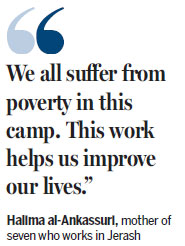
In a shop inside a large Amman hotel, prices range from 20 to 300 dinars ($30 to $430), according to Haj, who said "most buyers are foreign tourists".
For women in the workshop, embroidery is an important source of income.
"We all suffer from poverty in this camp," Ankassuri said. "This work helps us to improve our lives, even if we charge for our products individually at low prices, from 15 to 20 dinars."
Own motifs, patterns
More than 2 million Palestinian refugees are registered with the United Nations in Jordan, but about half of the country's 6.6 million population is of Palestinian origin.
Ankassuri and her colleagues learned the art of embroidery from their mothers and grandmothers. Each region of historic Palestine has its own motifs and patterns.
As well as presenting Palestinian history and culture to a new audience, their craftwork "helps promote the cause of our people", Aradah said.
Hiba al-Hudari, who was weaving a blue purse with Islamic inscriptions, said the workshop had become "a second home".
The 37-year-old mother of six said she earns about 150 dinars a month. "With that, I help my husband, who's a mechanic, provide for our household," she said.
Agence France-presse
(China Daily 11/28/2017 page10)




